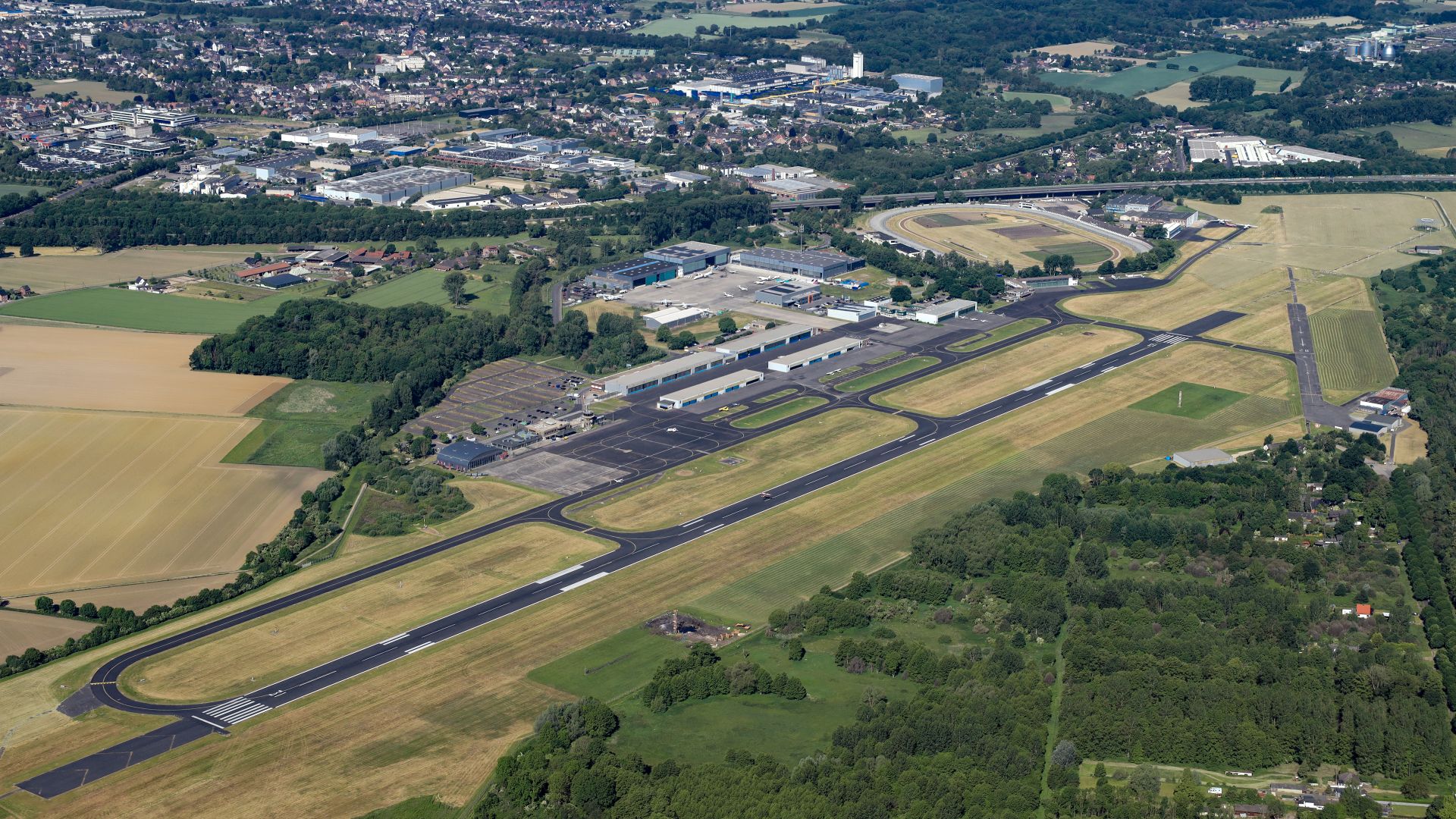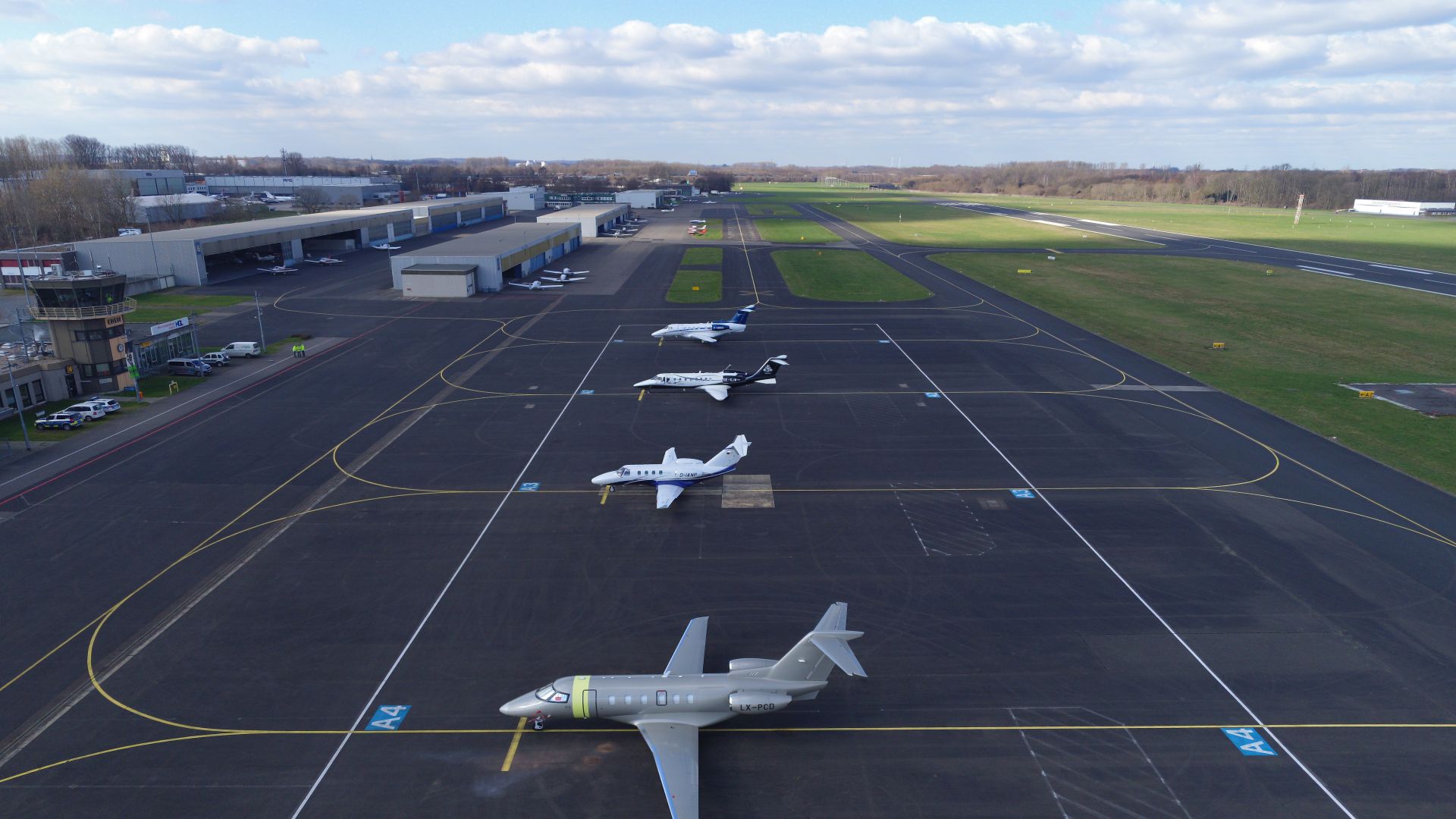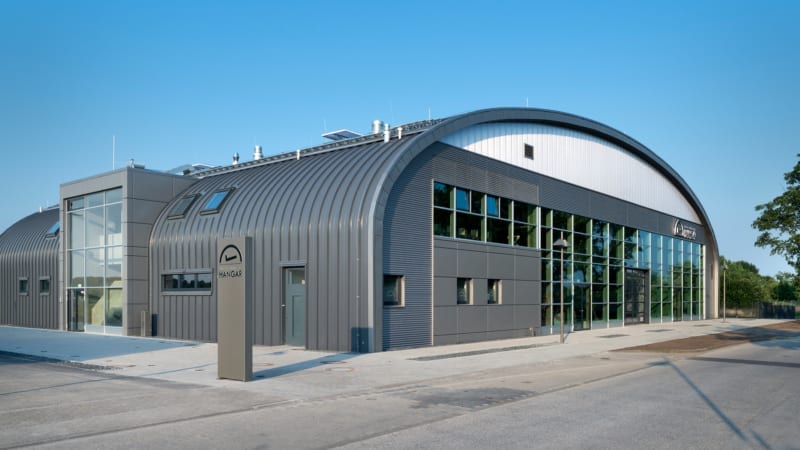Mönchengladbach Airport
From General Aviation to Zero Emission Aviation or how tradition becomes innovation: Mönchengladbach Airport (MGL) brings its potential to the starting line. With nearly 50,000 aircraft movements per year, MGL is one of the most important general aviation airports in Germany. Business pilots appreciate the central location, the weather-independent accessibility and the fast handling. Flight schools offer instrument flight training here. Regional aircraft and business jets from all over the world come to Mönchengladbach for maintenance. Private pilots find a home for their aircraft in the hangars. But the powerful aviation cluster also continues to develop and is strengthened by innovative projects such as the development of new flight systems.
An expert report by the German Aerospace Center has confirmed the great potential of Mönchengladbach Airport. The area is to be expanded in the coming years. Thanks to the existing infrastructure consisting of a control zone and an instrument landing system (ILS), MGL can operate largely independently of the weather, offering customers, users and also the region a controlled and safe handling of air traffic and important added value for the economic development of the region.
The airport is booming as a business location with around 50 companies and authorities based here and almost 800 employees. The most important business areas are the maintenance and repair of aircraft and engines of all kinds, for example by Rheinland Air Service (RAS). In addition, the flight schools at the airport offer a wide range of training and further education courses, including the RWL German Flight Academy, the largest private flight school in Germany. Business aviation also plays a central role. Regular events in the Hugo Junkers hangar, such as the vintage car FLY & DRIVE In, round off the wide range of offers.
Mönchengladbach Airport also serves as a real-life laboratory for aviation and is involved in projects in the field of “zero-emission aviation” and new propulsion systems in aviation. Successful test flights with electric aircraft have already been carried out. The integration of drones and air cabs into the airspace is also being researched. MGL is focusing on the early development of a charging infrastructure for electric aircraft powered by photovoltaic systems. Research initiatives such as SkyTRACKplus are developing concepts for the safe integration of innovative aircraft. The aim is to become a hub for new mobility concepts in NRW.



